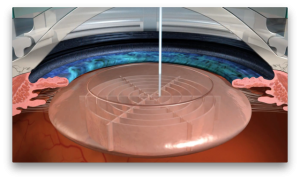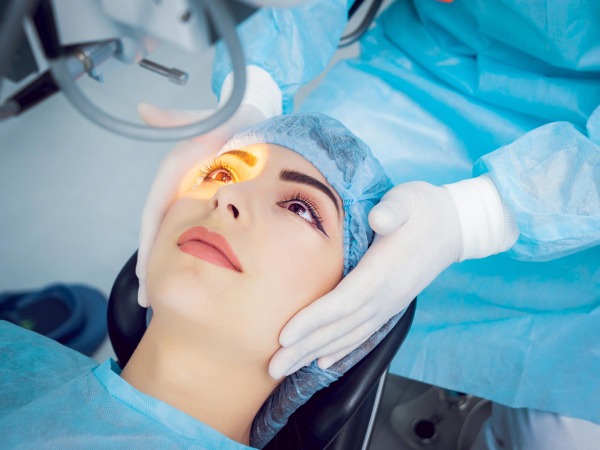If you are considering FLACS surgery, you are not alone. This type of surgery is becoming more and more popular, as people learn about the benefits it can offer. In this blog post, we will discuss what FLACS surgery is, what to expect during and after the procedure, and some of the risks associated with it. We will also provide tips for choosing a surgeon and preparing for your surgery.
What Is FLACS Surgery?
 FLACS surgery, or Fractional Laser-Assisted Cataract Surgery, is a new and emerging technology in the field of cataract surgery. This type of surgery uses a laser to create small incisions in the eye which allows for the removal of the cataract. FLACS is believed to be a safer and more effective method of cataract surgery than traditional methods.
FLACS surgery, or Fractional Laser-Assisted Cataract Surgery, is a new and emerging technology in the field of cataract surgery. This type of surgery uses a laser to create small incisions in the eye which allows for the removal of the cataract. FLACS is believed to be a safer and more effective method of cataract surgery than traditional methods.
It is a type of surgery that is minimally invasive. This means that there is less scarring and fewer side effects than with traditional methods of surgery. The recovery time is also shorter, and patients are often able to return to their normal activities within a few days.
FLACS surgery has been shown to be effective in treating various eye problems. If you are considering this type of surgery, it is important to speak with your doctor to see if it is the right option for you.
How Does It Perform?
FLACS surgery is a minimally invasive procedure that uses small incisions to access the affected area. The surgeon will then make tiny cuts to remove the damaged tissue. In some cases, they may also use lasers or other energy-based devices to help with the removal process.
The entire procedure usually takes less than an hour to complete. At first, you may feel some discomfort and have some bruising and swelling. However, this should start to improve within a few days. Most people are able to return to their normal activities within two weeks.
A specialist works with you to develop a treatment plan that meets your specific needs. If you have any questions or concerns, be sure to ask your doctor or surgeon. They can help put your mind at ease and ensure that you are getting the best possible care.
Therefore if you or anyone you know is considering FLACS surgery, be sure to consult with a specialist beforehand. This way you can be sure that you are making the best decision for your health and well-being. The procedure is relatively quick and has a high success rate, so you can rest assured that you are in good hands.
What Conditions Does FLACS Surgery Treat?
There are some conditions that are commonly associated with FLACS surgery. These include:
- Cataract surgery: It involves removing the cloudy lens from the eye and replacing it with a clear artificial one.
- Glaucoma surgery: This type of FLACS surgery is used to treat glaucoma, which is a condition that damages the optic nerve.
- Retinal detachment surgery: This surgery is helpful to treat a condition in which the retina becomes detached from the back of the eye.
These are some common conditions that FLACS surgery is used to treat. In addition, there are other less common conditions that FLACS surgery can be used to treat as well. These include:
- Tumors of the eye
- Injuries to the eye
- Age-related macular degeneration
So, you can see that FLACS surgery can be used to treat a variety of different conditions. Hence if you are suffering from any of the conditions mentioned above, you should definitely consider FLACS surgery as a treatment option. With the right intervention, you can get your vision back and lead a normal life once again.
What Are the Benefits of FLACS Surgery?
 There are several benefits associated with FLACS surgery. Some of these benefits include:
There are several benefits associated with FLACS surgery. Some of these benefits include:
- A shorter recovery time: One of the main advantages of FLACS surgery is that it has a shorter recovery time when compared to traditional surgery. This is because the incisions are smaller and there is less tissue damage.
- Less pain: FLACS surgery also results in less pain for patients. This is because the surgeon is able to target specific areas with the laser rather than making large incisions.
- Fewer complications: In addition, FLACS surgery has fewer complications than traditional surgery. This is because the surgeon is able to see what they are doing with the laser and make corrections if necessary.
- Increase in accuracy: FLACS surgery is also more accurate than traditional surgery. This is because the surgeon can target specific areas with the laser and make sure that they are getting rid of all of the cancerous cells.
As you can see, there are many benefits associated with FLACS surgery. Additionally, there are some emotional benefits as well. Many patients feel more comfortable with the idea of having surgery when they know that it is less invasive and will have a shorter recovery time.
If you are considering this type of surgery, it is important to talk to your doctor about all of the potential benefits and risks. This type of surgery is not right for everyone, but it may be the best option for you.
What Are The Risks And Complications?
There are a few risks and complications associated with FLACS surgery. Some common risks are as follows:
- Infection: During eye surgery, there is always a small risk of infection. The chances of developing an infection after FLACS surgery are very low, however, and can usually be treated with antibiotics.
- Dry eye: Dry eye is a common side effect of all types of eye surgery. It occurs when the eye does not produce enough tears, or when the tears evaporate too quickly. A dry eye can usually be managed with artificial tears or other over-the-counter treatments.
- Glare and halos: After surgery, some patients may experience glare, halos, or both around bright lights. These effects are usually temporary and should go away within a few weeks.
- Under-correction or over-correction: In some cases, the surgery may not correct the vision as much as the patient hoped. In other cases, the surgery may correct the vision too much. These problems can usually be corrected with a second surgery.
These are just some of the more common risks and complications associated with FLACS surgery. However, as with any type of surgery, there is always a small risk of complications. Be sure to talk to your doctor about all of the risks and complications before having surgery.
FLACS surgery is a safe and effective way to correct vision problems. The risks and complications are usually minor and temporary. With proper care, most patients will be able to enjoy clear vision for many years after surgery.
Conclusion
All in all, FLACS surgery for eye conditions is a safe and effective way to improve your vision. It is important to consult with your doctor to see if you are a candidate for this type of surgery. If you have any questions or concerns, be sure to ask your doctor about them. This surgery can help you see better and improve your quality of life.
Generally, it is a safe and painless procedure. For more information, please contact EyeMantra. We have a team of experienced eye surgeons, who will be happy to answer your any questions on cataract surgery, cataract surgery cost, cataract lens cost for different cataract surgery types- Phacoemulsification, MICS & Femto Laser Cataract . Call us at +91-9711116605 or email at [email protected] for inquiries.


